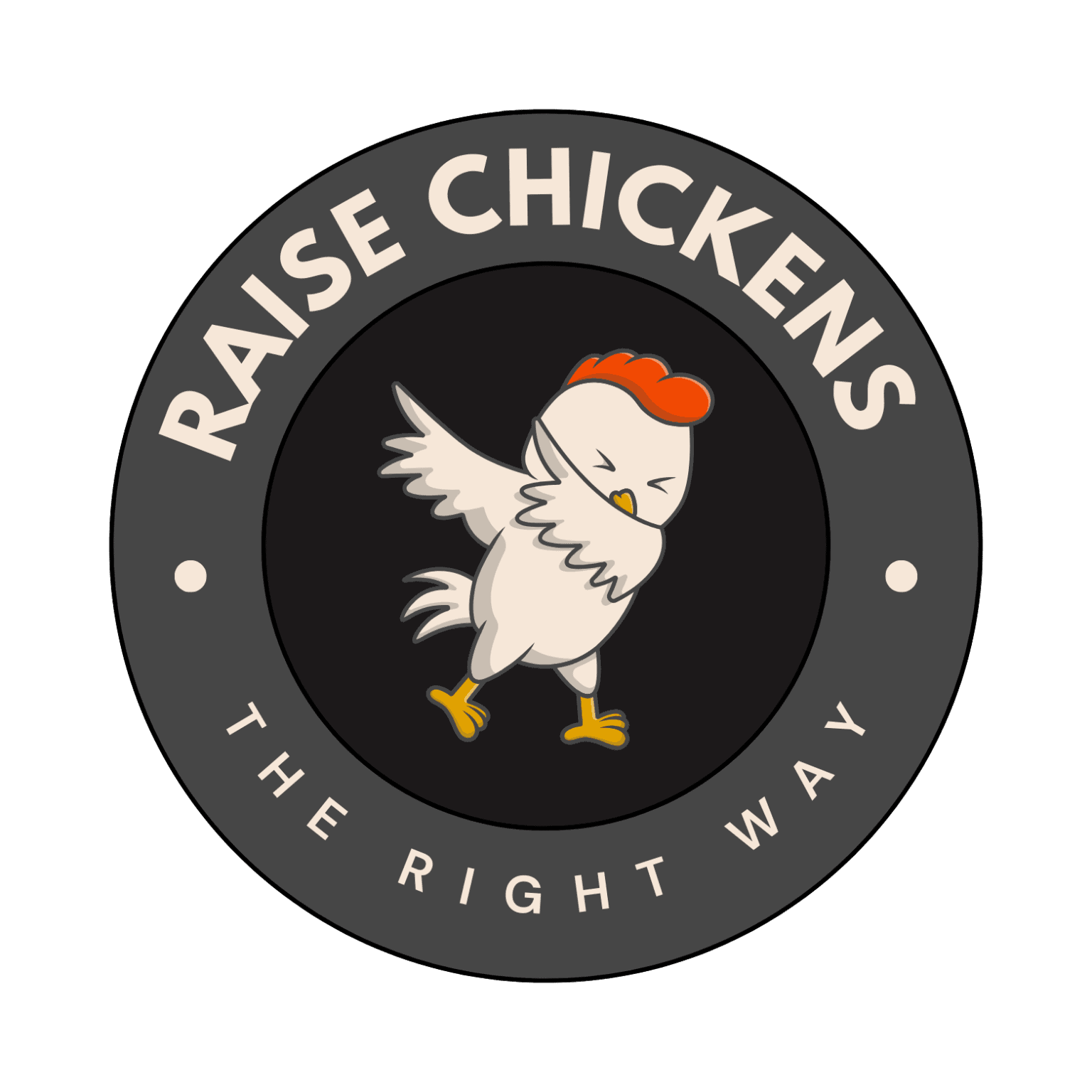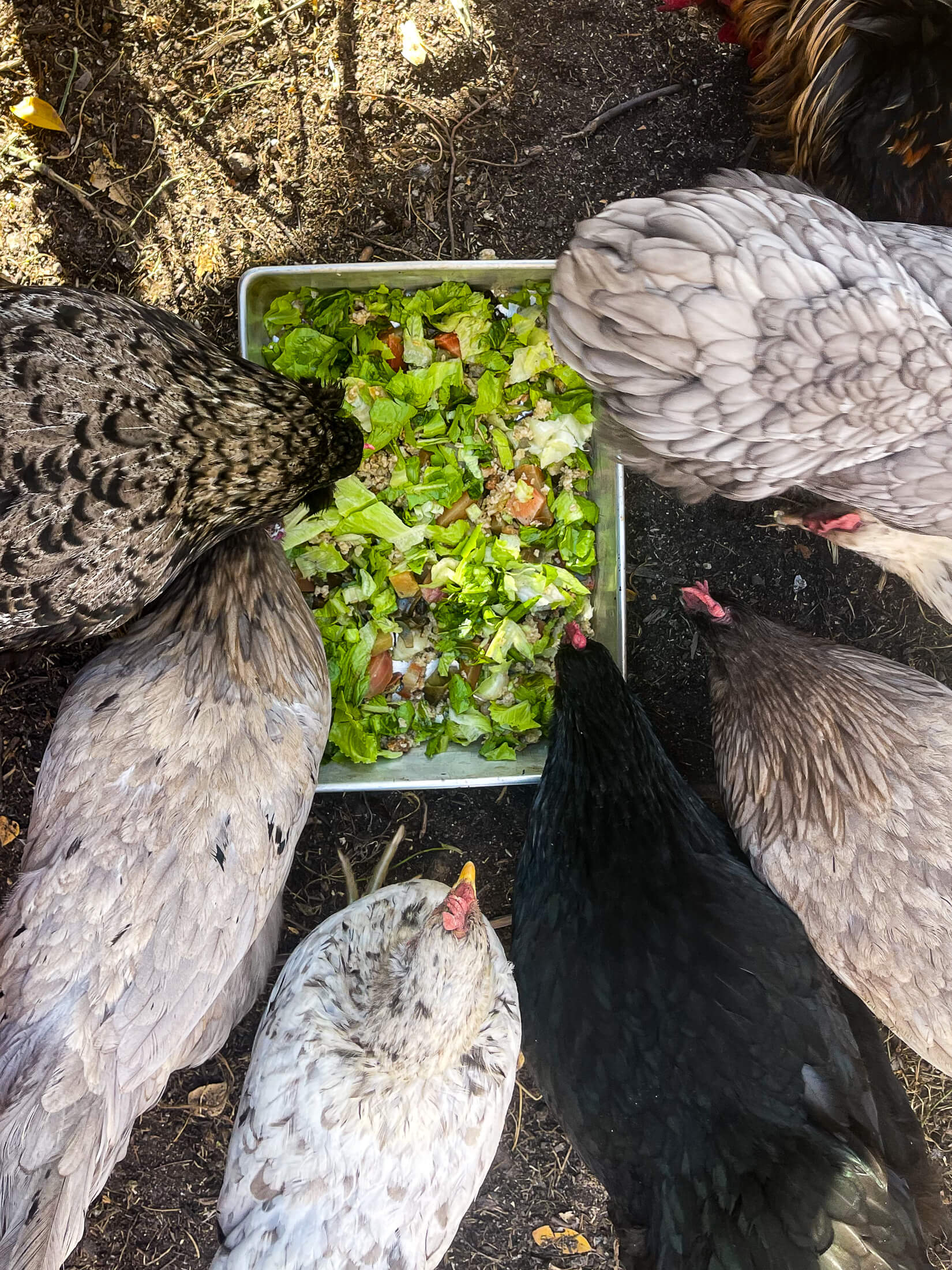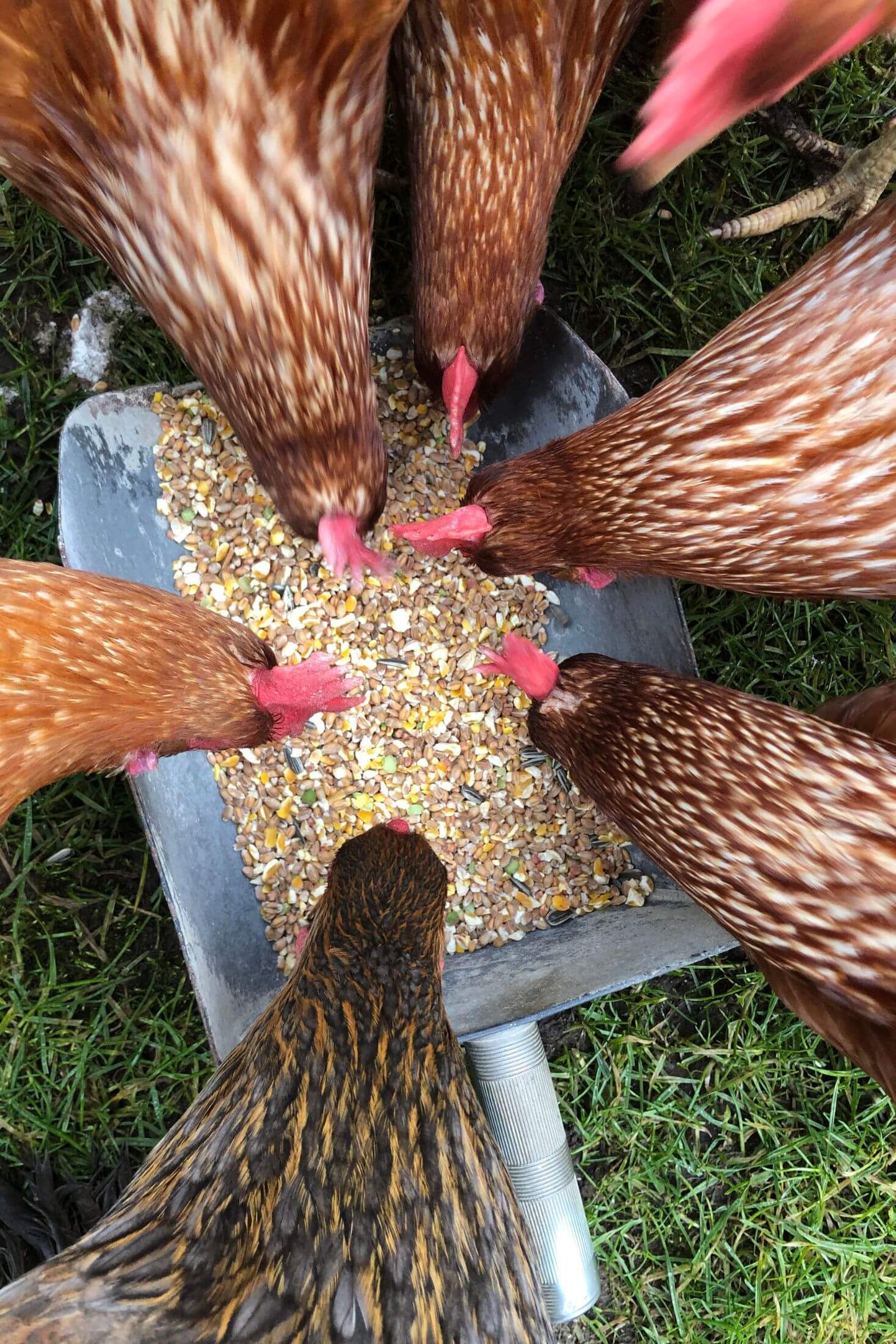Can Chickens Eat Onion? A Deep Dive Into The Truth About Feeding Onions To Your Flock
So, you're probably scratching your head right now thinking, "Can chickens eat onion? Is it safe? Will it harm my feathered friends?" Let’s be real here—raising chickens is no joke, and we all want what’s best for our backyard buddies. But when it comes to onions, things can get a little tricky. You’ve probably heard conflicting opinions from fellow chicken keepers or even stumbled upon some questionable advice online. That’s why I’m here to break it down for you in plain English. So, buckle up because we’re about to dive deep into the world of chickens and onions.
Let’s face it, chickens are curious little creatures. If you’ve ever left food lying around, chances are they’ve pecked at it. But not everything humans eat is safe for chickens. Onions, for instance, are a common kitchen staple that might seem harmless. However, there’s a lot more to consider before tossing them to your flock. Spoiler alert: onions aren’t exactly a chicken’s best friend.
In this article, we’ll explore everything you need to know about feeding onions to chickens. From the science behind why onions can be harmful to practical tips for keeping your chickens healthy, we’ve got you covered. So, whether you’re a seasoned chicken keeper or just starting out, stick around. This is one conversation you don’t want to miss!
- Adrian Paul Net Worth The Untold Story Behind The Legend
- Unleash The Ultimate Streaming Experience With Wwwbanflixcom
Table of Contents
- Introduction: The Chicken-Onion Debate
- Understanding Chicken Biology
- What’s in an Onion?
- How Onions Affect Chickens
- Safe Foods for Chickens
- Foods to Avoid
- Signs of Onion Toxicity in Chickens
- Preventing Onion Poisoning
- FAQs About Chickens and Onions
- Conclusion: Making the Right Choice for Your Flock
The Chicken-Onion Debate: Why It Matters
Alright, let’s get real. The question of whether chickens can eat onions isn’t just a casual curiosity—it’s a serious concern for anyone who cares about their flock’s health. Sure, chickens are opportunistic eaters, but that doesn’t mean they should eat everything we do. Onions belong to the Allium family, which also includes garlic, leeks, and chives. And guess what? These veggies can wreak havoc on a chicken’s system if consumed in large quantities.
Now, I know what you’re thinking. "But I’ve heard of people feeding onions to their chickens without any issues!" Well, here’s the thing: just because something doesn’t cause immediate harm doesn’t mean it’s safe in the long run. Onions contain compounds that can damage a chicken’s red blood cells, leading to anemia and other health problems. So, if you’re wondering whether it’s worth the risk, the answer is a big fat NO.
Understanding Chicken Biology: Why Onions Are a No-No
Let’s take a step back and talk about how chickens digest food. Unlike humans, chickens have a simpler digestive system that’s designed to process grains, seeds, and greens. Their bodies aren’t equipped to handle the complex compounds found in onions. Specifically, onions contain a substance called n-propyl disulfide, which can interfere with oxygen transport in a chicken’s bloodstream.
- Eva Longoria Elizabeth Judina Longoria A Journey Beyond The Spotlight
- Zverev Daughter A Rising Star In The Spotlight
Here’s the kicker: even small amounts of onion can cause issues over time. Chronic exposure to onions, whether raw, cooked, or powdered, can lead to cumulative damage. So, while your chickens might seem fine after nibbling on a piece of onion once, repeated exposure could spell trouble down the line.
What’s in an Onion? Breaking Down the Science
Onions are packed with flavor, but they also contain some pretty potent compounds that can harm chickens. The main culprit is thiosulphate, a sulfur compound that’s toxic to many animals, including chickens. When a chicken ingests onion, thiosulphate breaks down into oxidative agents that damage red blood cells, leading to a condition called hemolytic anemia.
But wait, there’s more! Onions also contain other harmful substances like allicin and alliin, which can irritate a chicken’s digestive tract. These compounds are present in varying amounts depending on the type of onion and how it’s prepared. For example, raw onions are more toxic than cooked ones, but that doesn’t mean cooked onions are safe. Bottom line: onions are a recipe for disaster when it comes to chickens.
How Onions Affect Chickens: The Ugly Truth
So, what happens when a chicken eats onion? The effects can vary depending on the amount consumed and the individual chicken’s health. In mild cases, you might notice symptoms like lethargy, weakness, or pale combs. But in severe cases, onion toxicity can lead to life-threatening conditions like anemia, respiratory distress, and even death.
Here’s a quick rundown of the potential effects of onion consumption in chickens:
- Lethargy and weakness
- Pale combs and wattles
- Difficulty breathing
- Decreased appetite
- Dark or bloody droppings
If you notice any of these symptoms in your flock, it’s crucial to act fast. Remove any potential sources of onion from their environment and consult a vet if necessary. Prevention is always better than cure, so let’s talk about how to keep your chickens safe.
Safe Foods for Chickens: What to Feed Instead
Now that we’ve established why onions are off the menu, let’s talk about what chickens can eat. The good news is that there are plenty of safe and nutritious foods you can offer your flock. Here are some of the best options:
- Fruits like apples, blueberries, and watermelon
- Vegetables such as carrots, spinach, and kale
- Grains like oats, corn, and wheat
- Protein sources like mealworms, scrambled eggs, and cooked chicken
When introducing new foods to your chickens, always start with small amounts and observe their reactions. Remember, moderation is key. Even safe foods can cause digestive upset if fed in excess.
Foods to Avoid: The Onion’s Naughty Siblings
If onions are a no-go, you might be wondering about other foods in the Allium family. Unfortunately, garlic, leeks, and chives are also on the list of foods to avoid. While some people claim that garlic is beneficial for chickens in small amounts, the risks often outweigh the benefits. It’s always better to err on the side of caution and skip these foods altogether.
Here’s a quick list of other foods to avoid:
- Avocado
- Chocolate
- Coffee
- Moldy or spoiled food
- Salty or sugary snacks
Feeding your chickens a balanced diet is the best way to ensure their health and happiness. Stick to safe foods and avoid anything that could potentially harm them.
Signs of Onion Toxicity in Chickens: What to Watch For
Knowing the signs of onion toxicity can help you catch potential problems early. If you suspect your chickens have eaten onion, keep a close eye on their behavior and physical condition. Here are some red flags to watch for:
- Lethargy or lack of energy
- Pale or discolored combs and wattles
- Labored breathing or coughing
- Decreased egg production
- Diarrhea or bloody droppings
If you notice any of these symptoms, isolate the affected chickens and provide fresh water and food. In severe cases, contact a veterinarian who specializes in poultry. Early intervention can make all the difference in preventing long-term damage.
Preventing Onion Poisoning: Tips for Chicken Keepers
Prevention is always better than cure, and when it comes to onion poisoning, a little vigilance goes a long way. Here are some tips to help you keep your chickens safe:
- Keep onions and other Alliums out of your chickens’ reach
- Dispose of onion scraps in a secure compost bin
- Supervise your chickens when they’re free-ranging
- Educate family members and visitors about safe foods for chickens
By taking these simple steps, you can minimize the risk of onion poisoning and ensure your flock stays healthy and happy.
FAQs About Chickens and Onions
Still have questions about chickens and onions? Here are some common queries and their answers:
Can chickens eat cooked onion?
Cooked onion is slightly less toxic than raw onion, but it’s still not safe for chickens. Cooking doesn’t eliminate the harmful compounds, so it’s best to avoid feeding onions in any form.
What happens if a chicken eats onion?
Onion consumption can cause a range of symptoms, from mild lethargy to severe anemia. The severity depends on the amount consumed and the individual chicken’s health.
Are all types of onions harmful to chickens?
Yes, all types of onions, including red, white, and yellow onions, are harmful to chickens. Even small amounts can cause damage over time.
Conclusion: Making the Right Choice for Your Flock
Alright, let’s wrap this up. Can chickens eat onion? The answer is a resounding NO. Onions are toxic to chickens and can cause serious health problems, including anemia and respiratory distress. While it might be tempting to share your kitchen scraps with your flock, it’s always better to err on the side of caution and stick to safe foods.
Feeding your chickens a balanced diet is one of the best ways to ensure their health and happiness. By avoiding harmful foods like onions and providing plenty of fresh water and nutritious treats, you can help your flock thrive. So, next time you’re tempted to toss an onion peel to your chickens, think twice. Your feathered friends will thank you for it!
Before you go, I’d love to hear from you. Have you ever dealt with onion toxicity in your flock? What steps did you take to keep your chickens safe? Leave a comment below and let’s keep the conversation going. And if you found this article helpful, don’t forget to share it with your fellow chicken keepers. Together, we can make the world a safer place for our feathered friends!
- Deephot The Ultimate Guide To Unlocking Its Potential
- Unveiling The Allure Of Erome Sophieraiin A Journey Into Her World

Can Chickens Eat Potatoes Safe Feeding Practices Explained Raise

Can Chickens Eat Celery? Boreal Bloom Homestead

Can Chickens Eat Celery? Boreal Bloom Homestead